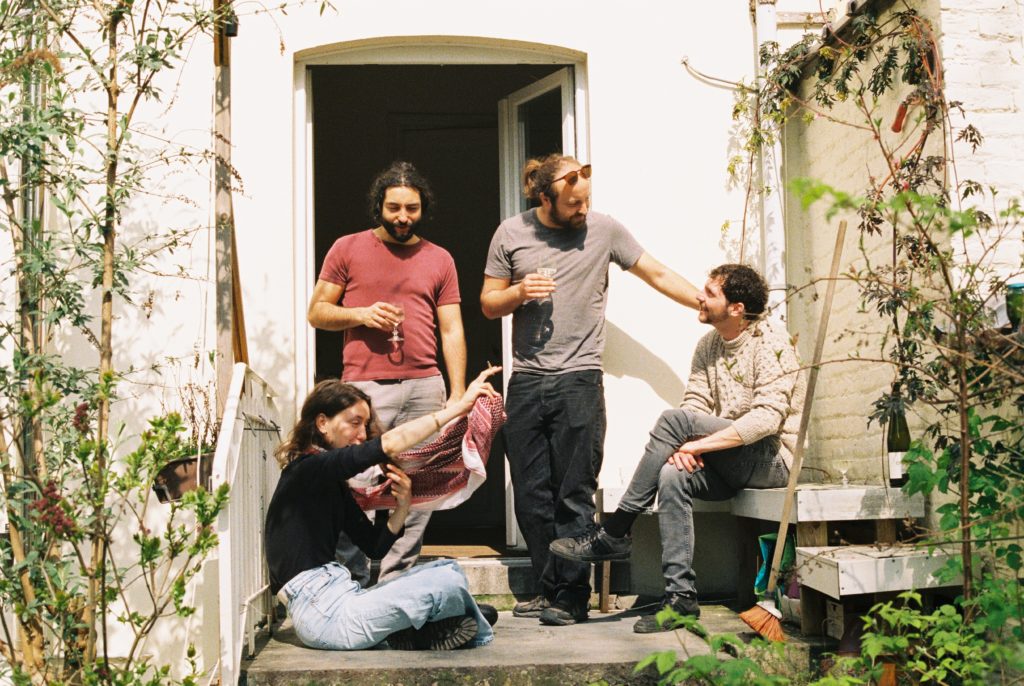Written by Märta Bonde and Saimah Jiwa

About 2 years ago, at a New Year’s Eve party, Talitha had a revelation. In her hand, she had a glass of sparkling wine, a drink she didn’t even like. Not only did she hate the taste, she became uncomfortable surrounded by intoxicated people: “I thought that was scary. The limit of things that they are willing to do gets a lot lower as soon as they are drunk or even tipsy. (…) It was scary losing control of what you were doing”.
Talitha describes a lot of behavioral changes she has experienced after she stopped drinking. Whenever she is invited to a party where alcohol is served, she either doesn’t go or leaves whenever she notices people around her getting drunk. According to her, deciding to quit drinking also comes with having to justify your decision in society. People tend to have a strong opinion about her drinking habits, she explains.
Talitha is an international student from Germany – a country where alcohol is very accessible. Alcohol is sold in grocery stores right next to packets of orange juice. In her opinion, the Swedish alcohol restrictions like the sale of alcohol over 3,5% only by Systembolaget is great, as it makes people actually put in an effort to buy the alcohol and reflect on their choices.
Lukas, another international student from Germany, agrees with Talitha’s opinion on Systembolaget. He feels that it is necessary for groceries and alcohol to be separated, as supermarkets should be a safe space for children and people with an alcohol addiction. In his eyes the restrictions lead to less spontaneous and more conscious drinking.
He also talks to us about the social acceptance of alcohol. “I find it surprising that alcohol consumption is not reflected in our society and some people need alcohol to talk, dance or be intimate with others”, he states. He quit drinking around 4 years ago. Unlike Talitha, Lukas goes out as often as before when he was still drinking. But he changed the events he goes to. Nowadays you can find Lukas on techno raves, where alcohol does not play such a big role in his opinion.
Alcohol consumption in Sweden is continuing to drop - especially among young people. The young at-risk drinkers are becoming fewer. Indications that can also be found internationally according to data from Eurostat from 2022. This data also shows that some people have even decided to stop consuming alcohol completely.
In Sweden, this trend is even more visible. Statistics from the Centralförbundet för alkohol- och narkotikaupplysning (CAN) show a decreasing trend in alcohol consumption. While 10.56 liters of pure alcohol were consumed per person over the age of 15 in 2014, the latest figure only shows a consumption of 8.82 liters in 2022. Although this shows a slight increase of the previous year, alcohol consumption in general is falling.
Young people in particular are increasingly giving up on the after-work beer or the occasional cocktail when partying. Showing a clear decrease of alcohol consumers at risk among 16 to 29 year olds. Risky consumption is defined by the socialstyrelsen. For men consumption that exceeds 14 standard glasses per week and for women consumption that exceeds 9 standard glasses per week is considered risky behavior. Also binge drinking - so drinking more that five (men) or four (women) glasses per occasion - is risky consumption by definition.
